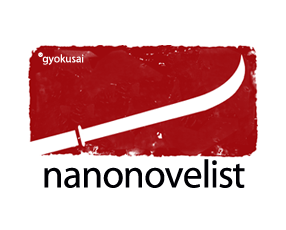My next project: An epistolary nanonovel. The problem is, ultrashort dialog often doesn’t sound dramatic, but rather droll.
Since I published my latest nanonovel Green Tape, I’ve been mulling over the idea to write an epistolary nanonovel.
Of course, epistolary novels are not generally known for their prominent appearances on the nano scale, from Samuel Richardson’s Clarissa from 1748 to John Barth’s postmodern epistolary novel Letters from 1979. Whereas the latter’s mere 800 pages look, compared to the former, slim.
I already sketched some ideas, but what seems to be most difficult here is to establish a dramatic tone.
The quick succession of ultrashort dialog lines, the “letters,” somehow always produces a feeling of facetiousness, jocularity, drollness. Granted, Barth’s epistolary novel is at times droll, and it’s supposed to be. Its tagline, after all, is “An Old Time Epistolary Novel by Seven Fictitious Drolls & Dreamers each of Which Imagines Himself Actual.” But there’s enough drama in the novel to make up for it, and in a nanonovel, there’s just not enough time for that.
To not sound droll in an epistolary nanonovel, developing a dramatic plot seems not enough. Maybe the words as such might have to be more weighty than usual, to make up for the inherent drollness of ultrashort dialog. I’ll give it another week or so. If I can’t come up with a working solution, I might try and write an epistolary nanocomedy instead.
If you have something valuable to add or some interesting point to discuss, I’ll be looking forward to meeting you at Mastodon!

